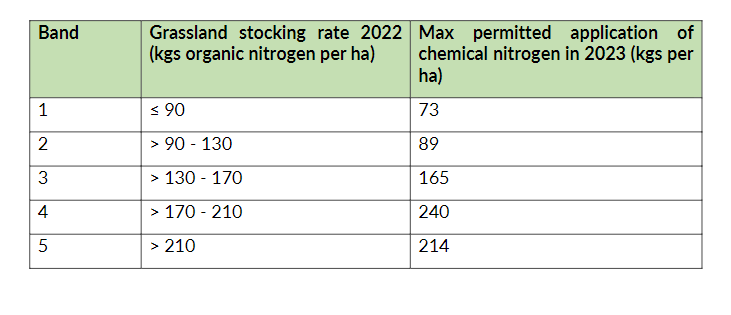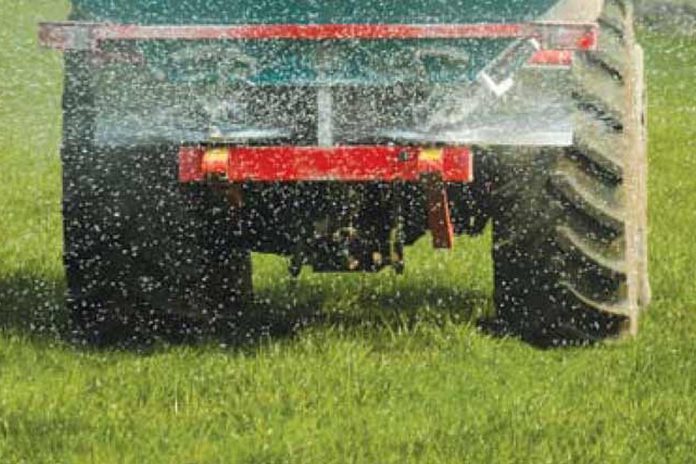In this news article, That’s Farming, takes a look at limited chemical nitrogen usage, also known as AP3, in the DAFM’s new Eco-Scheme, which we previewed in this news article.
Limiting Chemical Nitrogen Usage is classified as agricultural practice three (AP3) in the new Eco-Scheme, which could carry a payment rate of circa €60-€65/ha, subject to farmer uptake.
According to the DAFM (Department of Agriculture, Food and the Marine), this action will promote lower usage of chemical nitrogen, whereby they must not exceed a certain level of chemical nitrogen across their holding in the year of Eco-Scheme participation, in a bid to encourage farmers to “further increase nutrient use efficiency”.
The DAFM will present five bands to grassland farmers – as follows – based on their 2022 stocking rate (nitrates register), from which they must select the band relevant to them.

Terms and conditions
Farmers must not exceed the maximum chemical nitrogen allowance under this measure. The maximum limit of chemical nitrogen for arable crops under this practice is 139.41 kg/ha.
The maximum limit for mixed farming enterprises (grassland and tillage) will be calculated using a combination of both their grassland band limit and the arable crops limit, the DAFM has stated.
If a crop/land type has a lower chemical nitrogen limit under the Nitrates Regulations (S.I. No. 113 of 2022), farmers must adhere to this lower limit.
For new entrants in 2023 (i.e. no previous year’s stocking rate data), the stocking rate will be presented as band 1.
These farmers must remain at that level in the current calendar year if they select this AP in the Eco-Scheme.
Inspections
The DAFM will check compliance with the practice for 2023, but this may not be limited to the inspection of receipts for the purchase of fertiliser.
In light of this, the DAFM has advised farmers to maintain receipts for possible OTSC (on-the-spot checks) for the duration of the CAP programme.
In the scheme’s terms and conditions, it sets out that all invoices/ receipts/ statements should be legible, original versions and on supplier-headed paper.
According to the DAFM, the receipt must include:
- The supplier name and address;
- Date of sale;
- Applicant’s name and address;
- Type and quantity of chemical fertiliser purchased in kgs/tonnes.
The scheme’s T&Cs state that farmers participating in the Organic Farming Scheme are not permitted to select this Agricultural Practice in the Eco-Scheme as the use of chemical nitrogen is prohibited under organic farming rules.
Moreover, farm holdings of equal to or greater than 50% commonage area and/or forestry area are ineligible for this practice.
Previous farming news article on That’s Farming:
- About the scheme: Who can apply, how to apply: Eco-Scheme: 8 Agricultural Practices with a payment rate of circa €60-€65/ha
- Space for Nature – AP1
- Extensive Livestock Production – AP2
See more farming news on That’s Farming from farming journalist, Catherina Cunnane





